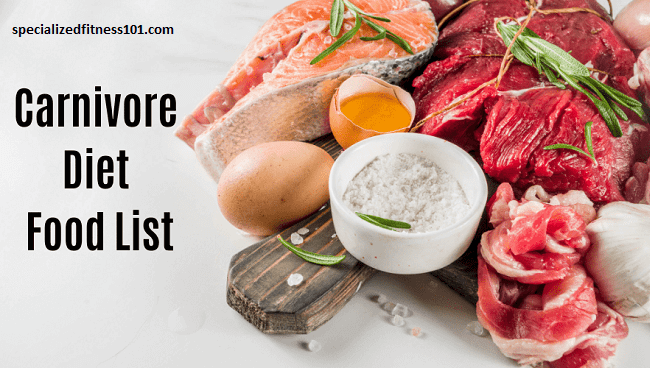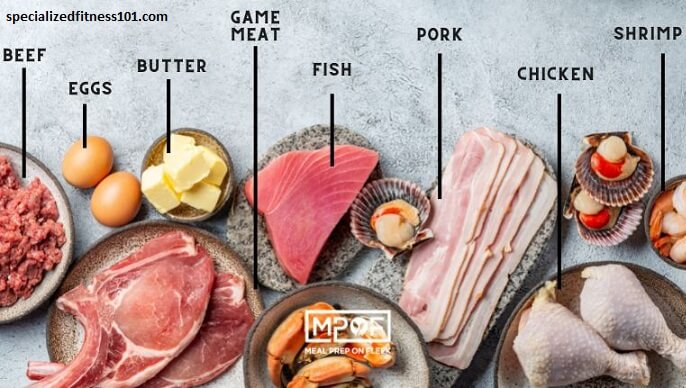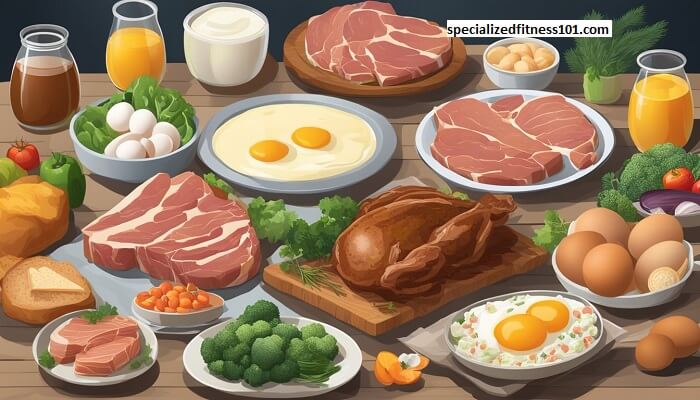The Carnivore Diet: A List of All Food:
In other words, the carnivore diet is colloquially called all meat. The interest was taken to great length recently with proponents asserting one could lose weight, become sharper of mind, and relieve one or another illness. It’s very simple-anything made of plants goes straight into the garbage and instead of eating them, eat this meat. This article explains what the carnivore diet is, the reason behind this diet, and the complete food list to give a proper idea about this diet.

Understanding the Carnivore Diet:
Generally speaking, the carnivore diet is a concept whereby human beings are supposed to survive solely on animal products. Its proponents suggest that most modern health issues emanate from the intake of processed foods, sugars, and carbohydrates. By reverting to an all-meat diet, they believe people can revert back to more natural ways of eating.
Important Principles of the Carnivore Diet:
Animal-Based Foods Only: The diet consists purely of animal products, such as meat, fish, eggs, and dairy.
Depletion of Carbohydrate Sources: It removes all carbohydrates, whether in fruits and vegetables, grains, or legumes.
Whole Food Oriented: This diet is more inclined to high-quality, processed foods as little as possible. Ideally, these are to be sourced from pasture-raised or grass-fed animals.
Benefits of the Carnivore Diet:
While there are some scientific studies available, anecdotal evidence has some possible benefits from the carnivore diet, which includes:
Most of the users assert to have achieved immense weight loss. Most probably due to calorie deficit and higher intake of protein.
Improvement in the brain’s cognitive functioning and moods. In the cases of a few individuals, mood stabilization was observed as well.
Reduction of Inflammation: No consumption of sugar or artificial products could result in minimizing inflammation responses.
Ease of use:
The diet plan is very simple and the selection and preparation of foods would be quite simple for one to manage. End
Before embarking on the carnivore diet, one needs to consider all the dangers that might accompany it, such as nutritional deficiencies, gastrointestinal issues, and the long-term sustainability of such a diet. It is always wise to get a healthcare provider’s input before making any drastic changes in lifestyle, especially for someone who has a history of health issues.
Total Carnivore Diet Food List:
1. Meat
Meat is one of the main components of the diet. Here are some foods you can include in your meal list:
Beef: Ground beef, steak (ribeye, sirloin, filet mignon), brisket, organ meats (liver, heart, kidneys)
Pork: Pork chops, bacon, ribs, tenderloin, ham, organ meats (pork liver)
Lamb: Lamb chops, ground lamb, leg of lamb, organ meats (lamb liver)
Poultry: Chicken (whole, breasts, thighs, wings), turkey (breast, legs), duck
Game Meats: Venison, bison, elk, rabbit, boar
2. Fish and Seafood
Fish and seafood are high in omega-3 fatty acids and can be added to your carnivore diet. Some of the options include the following:
Fish: Salmon, mackerel, sardines, tuna, trout, haddock
Shellfish: Shrimp, crab, lobster, clams, oysters
3. Eggs
Eggs are a great source of protein, healthy fats, and many nutrients. You can add the following to your diet:
Chicken Eggs:
Whole eggs, egg yolks, and egg whites

Duck Eggs:
These are richer in flavor and nutrients than chicken eggs.
4. Dairy Products
Dairy can be tolerated in moderation. Here are some good options:
Cheese: Cheddar, mozzarella, feta, goat cheese, cream cheese
Milk: Whole milk, heavy cream, sour cream, yogurt- preferably unsweetened and full-fat
Butter: Grass-fed butter, ghee
5. Animal Fats
Animal fats will comprise a significant portion of the carnivore diet, supplying energy as well as flavor. They include:
Tallow: Rendered beef fat is excellent for cooking.
Lard: Rendered pork fat is ideal for frying and baking.
Duck Fat: Adds richness to the dishes.
6. Bone Broth
Bone broth is a nutrient-dense addition, providing collagen and minerals. It is prepared by simmering animal bones and connective tissue in water for a long time.
7. Organ Meats
Organ meats are often called “nature’s multivitamins.” They are nutrient-dense and provide essential vitamins and minerals. Include:
Liver: Beef liver, chicken liver (high in vitamin A, B vitamins, and iron)
Kidneys: Beef or lamb kidneys
Heart: Beef or chicken heart
8. Condiments and Seasonings
The carnivore diet is somewhat limited, but seasonings and condiments may be added for flavor without straying from the diet:
Salt: Sea salt or Himalayan salt to season
Pepper: Black pepper, although some extreme followers may abstain
Herbs: Fresh or dried herbs like thyme, rosemary, and oregano can be used in small amounts
9. Beverages
Hydration is important, and there are a few drinks that you can consume on the carnivore diet:
Water: Plain water is the drink of choice.
Bone Broth: Nutrient-rich and hydrating.
Coffee: Some carnivore dieters consume black coffee or espresso, while others tend to avoid it.
10. Foods to Avoid
To be able to commit fully to the carnivore diet, you must remove the following foods from your diet:
Fruits and Vegetables: All plant-based foods are off-limits.
Grains and Legumes: Bread, pasta, rice, beans, and lentils.
Processed Foods: Those with sugary snacks and soft drinks, as well as products containing artificial preservatives and ingredients.

Going on a Carnivore Diet:
Gradual Progression: If you have been living on a more traditional diet, then your body should be slowly eased into it.
Variation: Incorporate different cuts and products from animals to make it interesting.
Listen to Your Body: Focus on how you feel as you go along and find the right food for your body.
Stay Hydrated: Drink plenty of water with electrolytes, especially through the first transition.

